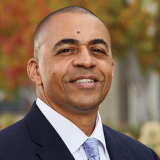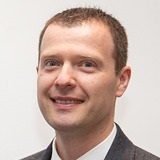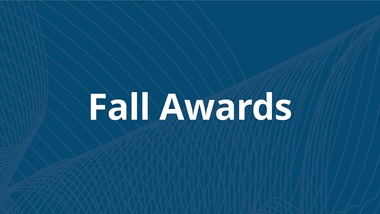
Plan ahead for Boston!
The 2025 MRS Fall Meeting & Exhibit will take place November 30-December 5, 2025 in Boston, Massachusetts, at the Hynes Convention Center and adjacent Sheraton Boston Hotel. The world's foremost international scientific gathering for materials research, the MRS meeting showcases leading interdisciplinary research in both fundamental and applied areas presented by scientists from around the world.
The MRS Fall Meeting delivers a combination of interdisciplinary cutting-edge research, innovative technologies, and collaborative networking with the field’s leading minds, which leads to new discoveries in areas ranging from quantum materials to energy and sustainability.
Abstract Submission
Join the prestigious ranks of voices shaping the future of materials research worldwide! Get ready to present your groundbreaking work at the upcoming 2025 MRS Fall Meeting & Exhibit in Boston.

The MRS Fall Meeting is the premier venue to stay at the forefront of materials research. Attending provides an opportunity to learn about the latest materials developments and explore interdisciplinary collaborations. Submitting an abstract and presenting your research at MRS offers visibility and an opportunity for feedback from a diverse and knowledgeable audience.
Barry Rand
Princeton University, 2025 MRS Fall Meeting Chair
Symposium Topics
EL01—Phase-Change Materials and Heterostructures for Photonics, In-Memory and Neuromorphic Computing
EL02—Two-Dimensional Ferroelectric and Multiferroic Materials and Heterostructures
EL03—Organic Electronic Devices—Charge Transport and Applications
EL04—Emerging Material Platforms and Approaches for Plasmonics, Nanophotonics and Metasurfaces
EL05—Frontiers in Low-Dimensional Complex Oxide Materials
EL07—Emerging Dynamic Materials in Integrated Optics and Photonics
EL08—Advances in Inorganic Materials and Devices for Neuromorphic Computing and Sensing Applications
EL09—New Concepts in Materials Synthesis and Sensor Design for Flexible Electronics
EL10—Materials for Heterogeneous Integration and Advanced Packaging
EN01—Advances in Critical Materials for Energy Efficiency
EN02—Next-Generation Technologies for Clean Energy and Materials Sustainability
EN03—New Chemistries, Multiscale Modeling and Advanced Manufacturing for Solid-State Batteries
EN04—Solid-State Alkali-Metal Batteries—Materials, Interfaces and Manufacturing
EN05—Advancements in Thermoelectric Materials—From Conventional to Cutting Edge
MT03—Accelerated Materials Discovery Through Data-Driven AI and Automation
MT04—Integrating Machine Learning and Simulations for Materials Modeling
MT05—Informed Synthesis of Materials—Data-Driven and In Situ Approaches
MT06—Generative AI Meets Materials Modeling—Emerging Opportunities and Challenges
MT07—Materials Research Opportunities for Energy-Efficient Computing
NM01—Scalable 2D Materials—Synthesis, Processing, Metrology and Device Implementation
NM02—2D MXenes—Advances and Outlook
NM03—Selective Separations from Nanomaterials
NM04—Advancements and Applications of Extreme Aspect Ratio Nanomaterials
NM05—Strain and Defect Engineering in 2D Materials
NM07—Synthesis, Properties and Applications of Laser-Induced Nanomaterials
SB01—Liquid–Liquid Interfaces for Emerging Biotechnologies
SB02—Ultrasound and Mechanoresponsive Materials and Devices for Biomedical Application
SB03—Materials-Driven Strategies in Living Matter Engineering
SB04—2D Nanomaterial-Enabled Multifunctional Bioelectronics
SB05—Advances in Bioinspired and Biohybrid Materials—Design, Manufacturing and Applications
SB06—The Interface of Optoelectronics and Biology
SB08—Toward Chronically Implantable and Wearable Soft Devices
SB09—Biomaterials for Regenerative Engineering
SB10—Design and Development of Novel Gel Materials for Emerging Applications
SF01—Aerogels and Aerogel-Inspired Materials
SF02—Rare Earth Nitrides—From Fundamental Advances to Device Applications
SF04—Magnetoactive Soft Materials and Devices
SF05—From Robotic Toward Autonomous Materials
SF07—Emerging Approaches for Probing Martensitic Transformation Dynamics
SF08—Functional Films and Adhesives
SF09—Materials at High Temperatures—Fabrication, Characterization and Performance
SF10—Dislocation Behavior in Crystalline Materials—90 Years of Dislocation Theory and Application
Meeting Chairs
-

Osaka Metropolitan University and National Institute of Information and Communications Technology
-

Lawrence Livermore National Laboratory
-

University of Leeds
-

Princeton University
-

University of Washington
Stay In Touch!







